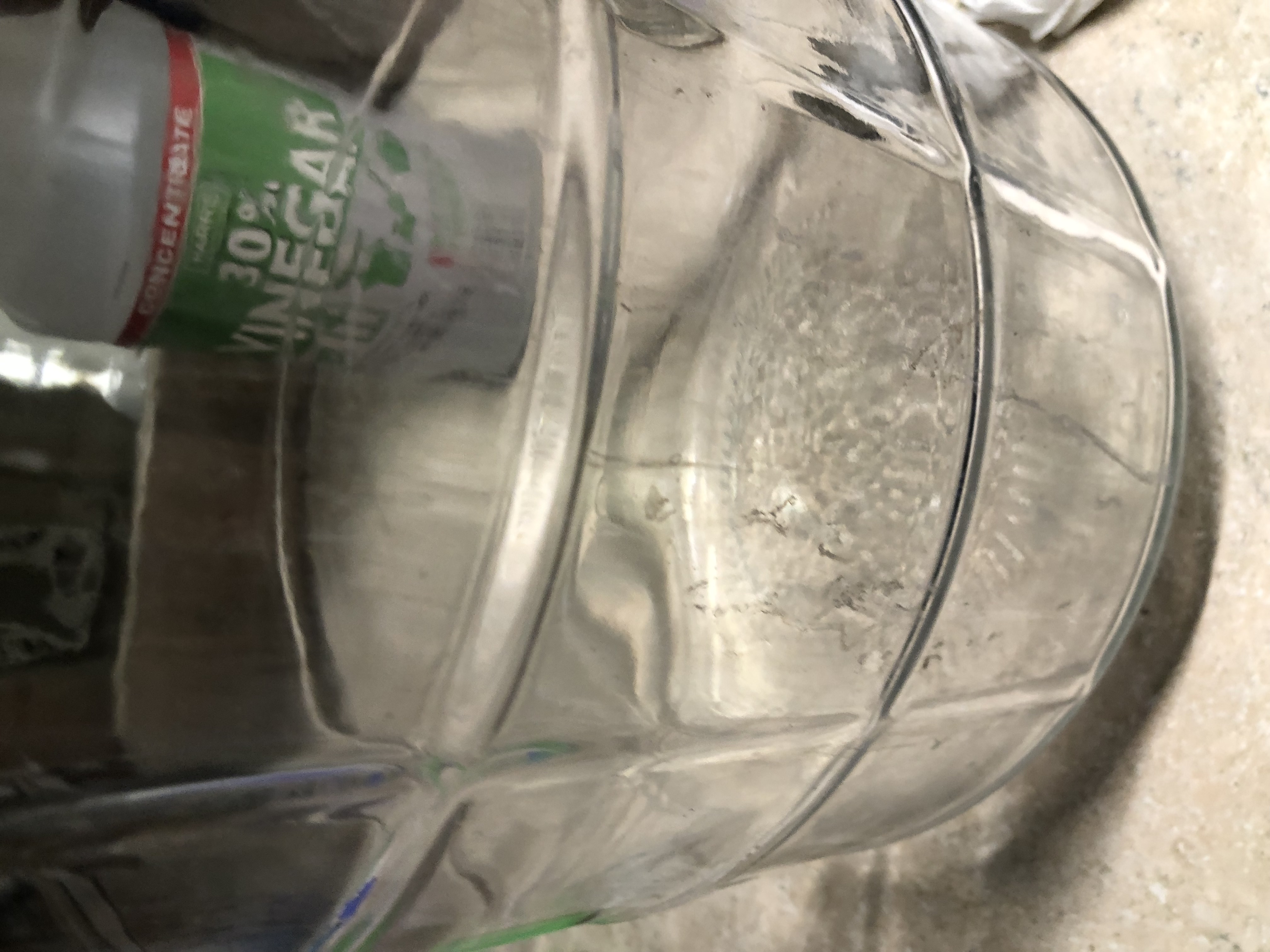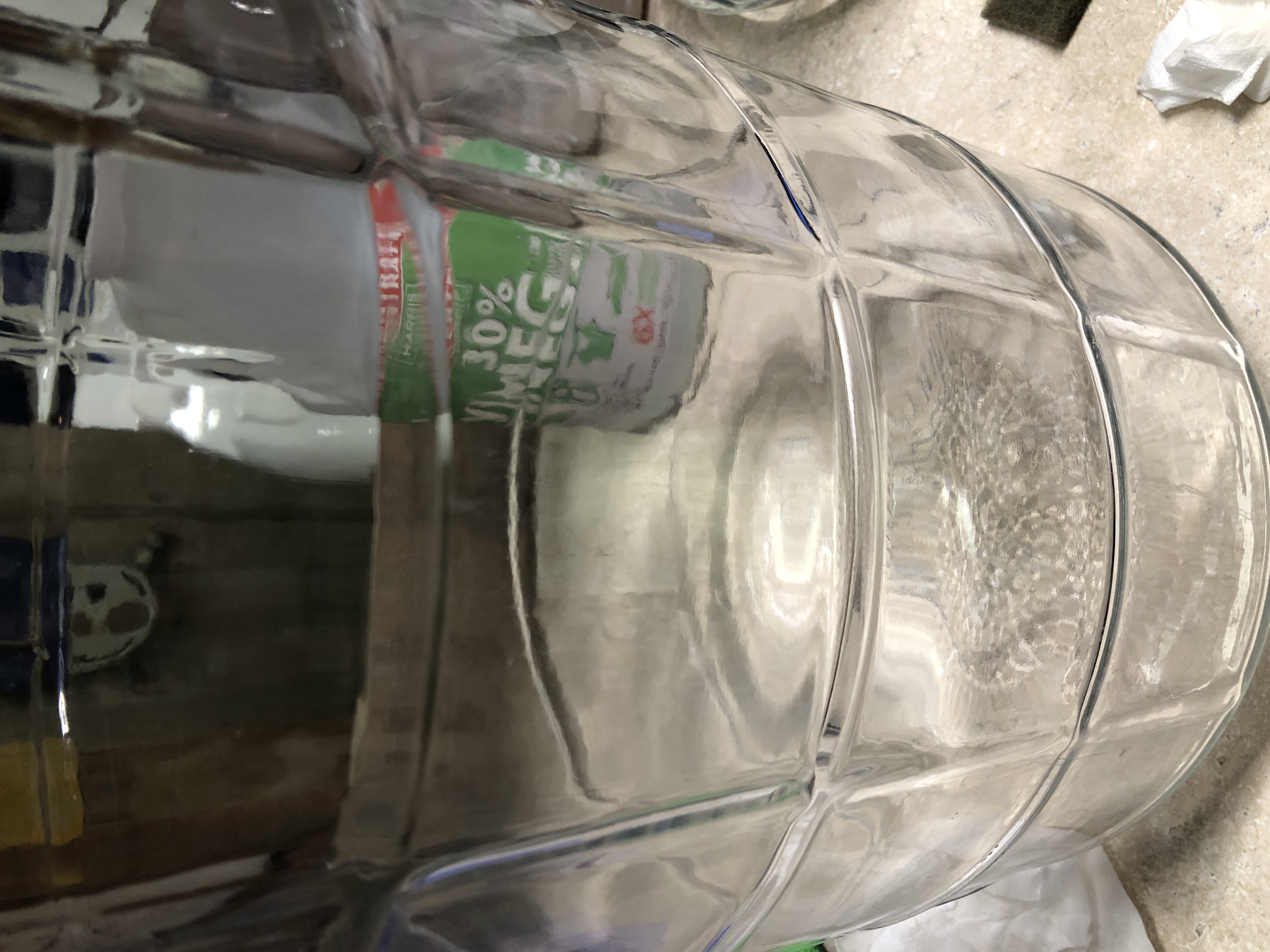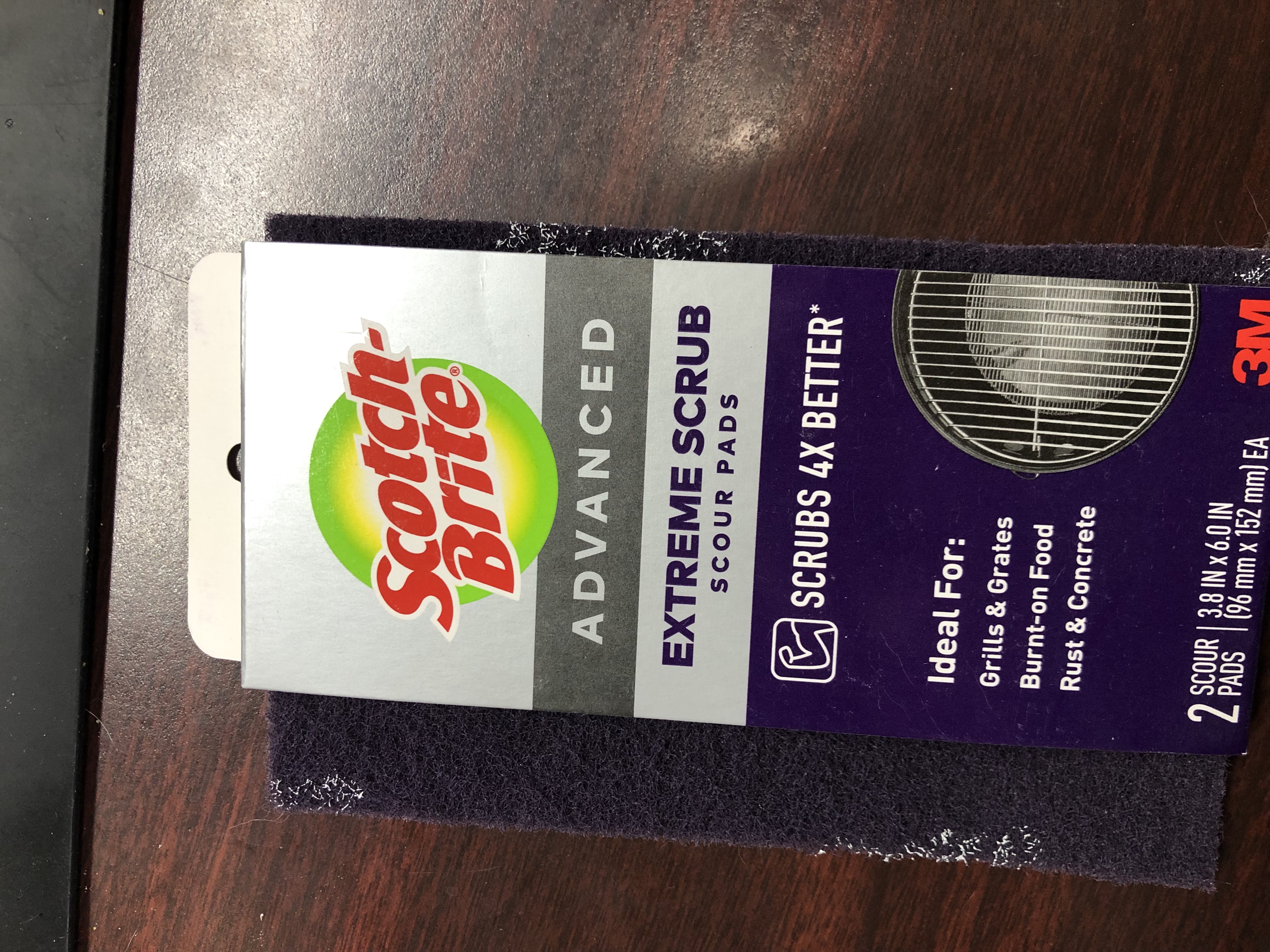AjaxOfTheRockies
Junior
Hay everyone! I bought a few used glass carboys which just looked like they need to be cleaned. Turns out the white streaks on the outside are near impossible to remove.
I've tried PBW, Windex, 409, vinegar, CLR, and steel wool. With 10 minutes of steel wool, I can get it off a small patch. Would take hours to get it all off the 6gal one - not worth the cost savings IMHO. Till this stuff is gone, I can't really tell if the inside is clean.
Any suggestions on what this may be or how to remove? Also, I bought them from an accomplished
winemaker here in Colorado so I don't expect they contained anything particularly weird.


I've tried PBW, Windex, 409, vinegar, CLR, and steel wool. With 10 minutes of steel wool, I can get it off a small patch. Would take hours to get it all off the 6gal one - not worth the cost savings IMHO. Till this stuff is gone, I can't really tell if the inside is clean.
Any suggestions on what this may be or how to remove? Also, I bought them from an accomplished
winemaker here in Colorado so I don't expect they contained anything particularly weird.









